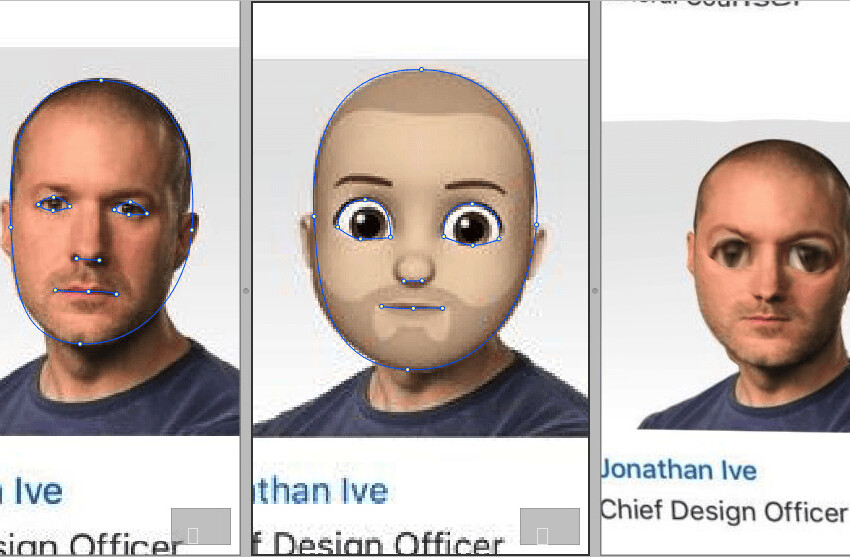
Andrea Ayres-Deets is the Lead Writer at ooomf, an invite-only network connecting short-term software projects with handpicked developers and designers. Andrea writes about psychology, creativity, and business over on the ooomf blog.
Some days, I feel like this:

The house looks like crap, I look like crap, and everything I produce is crap.
I make coffee expecting that to help. It doesn’t. Instead I just start grinding my teeth.
Flashback to a dentist asking me, “Have you ever had a traumatic mouth injury?”
I’ve never had a traumatic mouth injury.
I can’t believe I haven’t done anything with my life yet.
This is a bad day.
The bad days seem to happen more often than I care to admit. Bad days are part of our brain’s design. There’s good new though, there’s a way out of this destructive cycle.
“Single bad events are far stronger than even the strongest good ones”
–Roy F. Baumeister & Ellen Bratslavsky
Thanks to a little thing called evolution we remember negative events far more than positive ones. Originally, this was designed to prevent us from engaging in activities likely to kill or maim us. This is commonly referred to as a negativity bias and we’ve all got one.
Your brain’s amygdala is responsible for declarative memory, or facts that can be recalled. The more emotionally charged an event, the more the amygdala is activated. That’s why we remember more about negative events than we do about neutral or even positive ones.
Your brain is hard wired to react more so to negative events than positive ones. Here are just some of the ways:
- Negative events or failures cause us to self-evaluate and search for meaning.
- We remember an individual’s negative traits much more than their positive ones.
- Your brain devotes more time and attention to negative stimulus
- People remember the negative word choices we use to describe ourselves, much more so than any positive attributes we list.
- Acceptance by our peers does not affect self-esteem but rejection sure does.
Each of these things increases the impact negativity has upon us. This is why bad days tend to feel so very bad.
We also don’t think of our good days in the same way. We have a drive to get out of a bad mood, but we don’t have that same drive for good moods. The brain isn’t wired to react to good in the same, enthusiastic way it does to bad. That means we have to work twice as hard to make up for it.
Here are a few tips for how to bring yourself out of a bad day:
Do something for you

If you’ve got the bad day blues, don’t put any additional pressure on yourself. Instead do something that has brought you joy in the past.
Pick up your book, your favorite book, and leaf through it. Do something you associate with a positive past experience. This helps you not only recall the emotion you felt but also the connection you have with the object or the person associated with it. Yes, this can actually make you feel better.
If you attach a positive memory to a physical location or object, you can more easily recall that memory by just thinking about the location or object. Research has shown this method improves the way depressed individuals recall good times.
Go outside

Put on some gym shoes, go for a bike ride, or simply just leave your house for a little while. It only takes about 20 minutes to receive the full mental and physical benefits of exercise.
Exercise helps us produce serotonin receptors in the brain, and the more you exercise the more receptors the brain produces. Exercise is our reset button and as an added bonus it improves memory recall.
Change your perspective

Write down three things you like, three things you think you do well or three things that are good in your life. Visualize your best possible self and practice expressing gratitude for what you do have. If you do this daily, and not just on days when you feel particularly bad, you can change the way you think.
In an interview with The Atlantic, Dr. Rick Hanson—a neuropsychologist—says that we should aim to focus on “the good” for 10-30 seconds. That’s 10-30 seconds each time we experience or encounter something positive.
Those seconds help the brain rewire itself, to commit that positive moment to memory. This means we will have an easier time recalling that moment in the future.
Give yourself a complex mental task

Have a puzzle laying around? Well, that puzzle might just be the thing to help get your day out of the gutter. This seems counterintuitive but researchers found out the more challenging the “cognitive load” the more our mind focuses on it.
Your brain will take away resources from the negative thoughts and devote them to the mental task at hand. This can be the shake-up your brain needs to start turning your day around.
Make yourself laugh

Do something strange. Make a bunch of silly faces. Laughter is at least one area where evolution is on our side. It is believed that laughter has survived evolution because it brings us together and makes feel better. Most of us know that it releases dopamine and endorphins, but it also makes us more resistant to pain.
When you laugh, you smile and this can also help alleviate your bad mood. Smiling helps us get rid of stress and lowers our heart rate. The only thing you have to remember is that it has to be a genuine smile that reaches the eyes, this will activate the joy centers in our brain. It looks like Tyra Banks was right all along.
“Time cools, time clarifies; no mood can be maintained quite unaltered through the course of hours.” ––Mark Twain
When I’m having a bad day, I become physically repulsed by the joy of others. I don’t want to hear about the happiness of others. I want to sit and stew in my misery. On those days, I like to look at my bookcase.
I’ve got two of them now and it’s something I’m really proud of. I love books. I love everything about them. I pick up Harry Potter and the Goblet of Fire and POW! It’s 2 a.m. at the end of a very hot July in Chicago.
I’m sitting on the purple leather couch in the house I grew up in. I’ve been reading for six hours and I can’t stop. That summer reading books was the only thing I did and it was probably the best summer I’ve ever had. This makes me happy.
I’ve got all of these memories tied up in little bundles in these books and that brings me joy. This doesn’t solve all of my problems, it doesn’t make my workload any less, but that’s not what this is about. It’s about taking a moment to feel good, to let good in.
Get the TNW newsletter
Get the most important tech news in your inbox each week.




